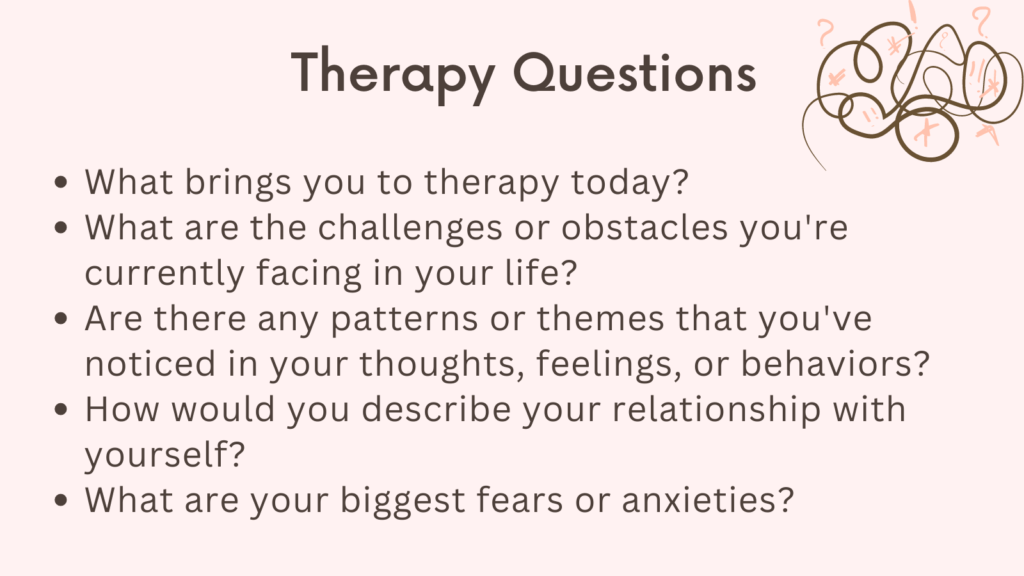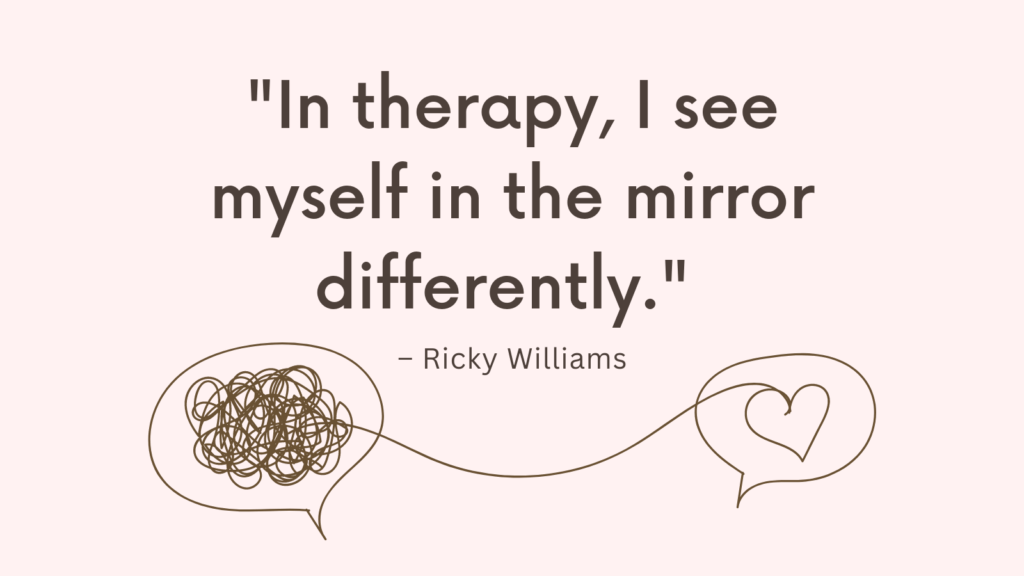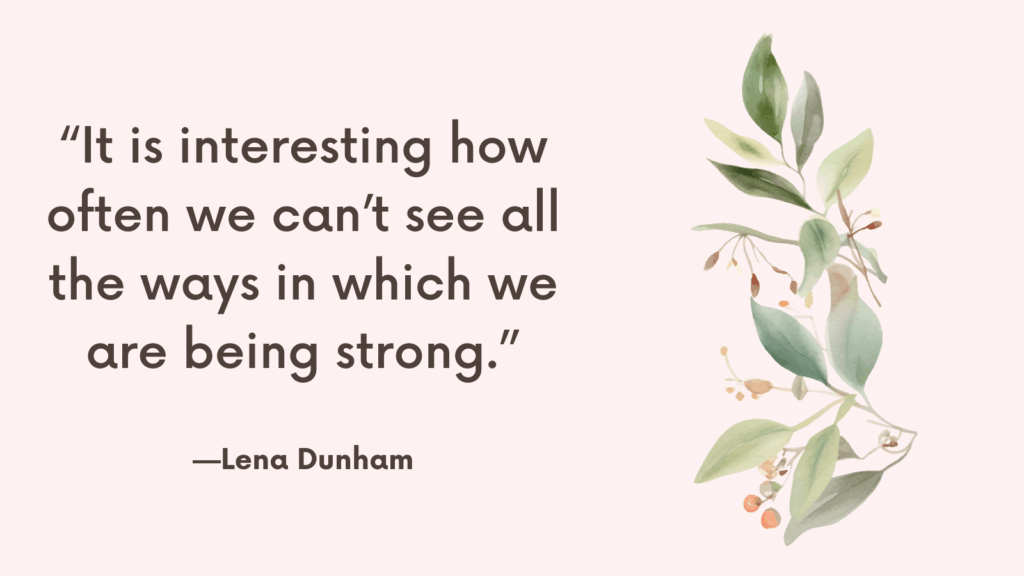This post contains a list of 100 therapy questions.
Importance of Therapy Questions
Therapy questions play a crucial role in the process of therapy by providing a safe and structured way for individuals to explore their thoughts, emotions, and experiences.
These questions create a space for self-reflection, helping individuals gain a deeper understanding of themselves and their unique circumstances.
By encouraging introspection, therapy questions help individuals identify patterns, beliefs, and behaviors that may be hindering their personal growth or causing distress.
Additionally, therapy questions can provide a sense of validation and support, as they demonstrate that someone genuinely cares about understanding and helping them in their journey towards well-being.
Related: Best 10 Narrative Therapy Books
100 Therapy Questions
Self-Reflection and Personal Growth Questions
1. What brings you to therapy today?
2. What are the challenges or obstacles you’re currently facing in your life?
3. What are your strengths and resources that can support you in reaching your goals?
4. Are there any patterns or themes that you’ve noticed in your thoughts, feelings, or behaviors?
5. How would you describe your relationship with yourself?
6. What are your biggest fears or anxieties?
7. Can you identify any negative or limiting beliefs that hold you back?
8. What are some unhelpful coping mechanisms or habits you’d like to change?
9. How do you typically respond to failure or setbacks?
10. Are you satisfied with your current work or career path?
11. Are there any habits or behaviors that you would like to develop or cultivate?
12. What are your favorite ways to practice self-reflection or self-discovery?
13. Can you identify any unhealthy patterns or cycles in your life?
14. How would you describe your relationship with money and financial well-being?
Related: FREE Therapy Journal Template
15. What role does creativity or self-expression play in your life?
16. How do you navigate and prioritize your various roles and responsibilities?
17. How do you cultivate and maintain a positive mindset?
18. Can you identify any irrational or unhelpful thinking patterns?
19. How do you define and experience personal growth or self-improvement?
20. Are there any unresolved resentments or forgiveness issues in your life?
21. Can you identify any perfectionistic tendencies and their impact on your well-being?
22. Can you identify any recurring dreams or symbols that may hold significance?
23. Can you identify any self-sabotaging behaviors or patterns?
24. Can you identify any patterns of self-criticism or negative self-talk?
25. Can you identify any beliefs or expectations that contribute to perfectionism?
26. Can you identify any patterns of codependency or unhealthy relationships in your life?
27. Can you identify any avoidance or numbing behaviors that you engage in?
28. Can you identify any unresolved issues related to your body or physical appearance?
Related: Healing Isn’t Linear: What Does It Mean?
Relationships and Communication Questions
29. How do you typically handle conflicts or disagreements with others?
30. How do you define and experience love and connection?
31. How do you manage boundaries with others and protect your own well-being?
32. Are there any significant relationships in your life that need healing or improvement?
33. How do you balance your personal needs with the needs of others?
34. How do you nurture and maintain healthy relationships in your life?
35. Are there any negative relationships or toxic influences that you need to address?
36. How do you define and maintain healthy boundaries in your relationships?
37. Are there any unresolved conflicts or misunderstandings that need attention?
38. How do you navigate and manage expectations from others?
39. How do you handle and communicate your needs in relationships?
40. How can you build and nurture a supportive social network?
41. How do you define and experience intimacy in your relationships?
42. How do you handle and navigate conflicts within your family of origin?
43. What is your relationship with vulnerability, and how does it impact your relationships?
Related: Do We Need Couples Therapy Quiz
Emotional Well-being and Mental Health Questions
44. How would you describe your current emotional state?
45. How do you typically cope with stress or difficult emotions?
46. How do you practice self-acceptance?
47. How do you practice self-compassion?
48. How do you typically handle change or transitions in your life?
49. What are your preferred methods for managing your mental health?
50. How do you manage and express your emotions?
51. Are there any unresolved grief or losses that you need support with?
52. What impact does your physical health have on your mental well-being?
53. How do you handle feelings of loneliness or isolation?
54. How do you typically handle criticism or judgment from others?
55. What are your current sources of stress or overwhelm in your life?
56. How do you handle feelings of guilt or shame?
57. How do you handle and cope with feelings of anger or frustration?
58. How do you handle and process feelings of jealousy or envy?
59. How do you handle and process feelings of disappointment or failure?
60. How do you handle and manage feelings of guilt or regret?
61. How do you nurture and maintain a positive body image?
62. How do you handle and navigate feelings of uncertainty or fear?
63. Can you identify any negative core beliefs that contribute to low self-esteem?
64. Can you identify any limiting beliefs about yourself or your abilities?
65. How do you handle and cope with feelings of sadness or grief?
Related: Best 23 Therapist Gifts Ideas
Trauma and Healing Questions
66. How has your upbringing or family dynamics influenced your current mental health?
67. Are there any unresolved traumas or past experiences that continue to affect you?
68. What emotions or symptoms do you associate with your experiences of trauma?
69. Are there any unresolved issues from your childhood that still affect you today?
70. How do you handle setbacks or disappointments in your life?
71. How do you handle and process grief or loss?
72. Are there any unresolved issues or unfinished business that need closure?
73. What role does self-compassion play in your life, and how can you cultivate more of it?
74. How do you practice self-forgiveness and let go of past mistakes?
Related: Best 99 Coping Skills (+FREE Coping Worksheets)
Goal Setting and Action Planning Questions
75. What are your main goals for therapy?
76. What can you do to improve your self-esteem and self-confidence?
77. What steps can you take to enhance your self-care routine?
78. What steps can you take to create a more balanced and fulfilling lifestyle?
79. What steps can you take to enhance your communication skills in relationships?
80. What is your relationship with self-advocacy, and how can you strengthen it?
81. What steps can you take to improve your self-awareness and emotional intelligence?
82. What steps can you take to enhance your assertiveness and boundary-setting skills?
Related: How To Feel Your Feelings? Top 9 Difficult Emotions To Cope With In Healthy Ways
Spirituality and Meaning-Making Questions
83. What does a fulfilling and meaningful life look like to you?
84. What are your core values and how are they reflected in your daily life?
85. How do you stay motivated and inspired in your life?
86. What role does spirituality or faith play in your life?
87. What aspects of your life bring you the most joy and fulfillment?
88. How do you define and pursue happiness in your life?
89. What role does gratitude and appreciation play in your daily life?
90. How do you define and experience spirituality or connection to something greater than yourself?
91. How do you define and experience personal fulfillment, and what steps can you take to align your life with it?
92. What makes you feel alive, passionate, or engaged in life?
Related: Best 6 Mindfulness Exercises For Beginners (+FREE Resources)
Self-Care and Well-being Questions
93. What is your relationship with self-care and how do you prioritize it?
94. How do you typically handle feelings of overwhelm or stress?
95. What strategies do you use to manage stress and promote relaxation?
96. How do you navigate and set healthy boundaries with technology and social media?
97. What is your relationship with time management and productivity?
98. How do you maintain boundaries between work and personal life?
99. How do you prioritize and attend to your own needs in relationships?
100. How do you handle and navigate feelings of overwhelm or burnout?
Related: Top 45 Self Care Day Ideas at Home To Kickstart Your Self Care Ritual
FREE 100 Therapy Questions PDF
Conclusion
Therapy questions play a crucial role in the therapeutic process, as they help guide individuals towards self-exploration, understanding, and growth.
These questions are designed to promote reflection, challenge limiting beliefs, and encourage clients to explore their emotions and experiences in a safe and supportive environment.
They aim to deepen the level of introspection and self-awareness, allowing clients to gain insights into their thoughts, feelings, and behaviors.
The patience and gentle guidance of a therapist in asking these questions allow individuals to gradually explore and address their concerns at their own pace, ultimately leading to personal growth and healing.



